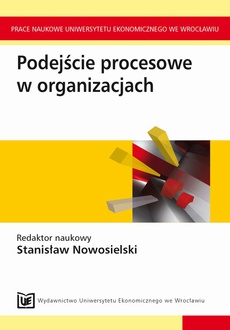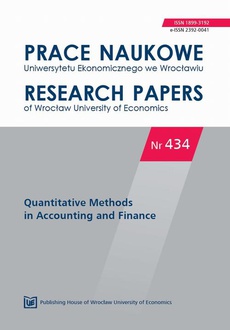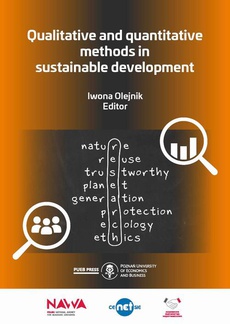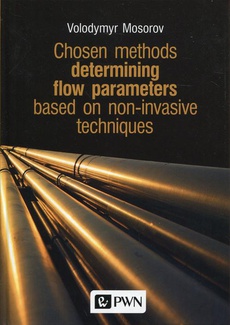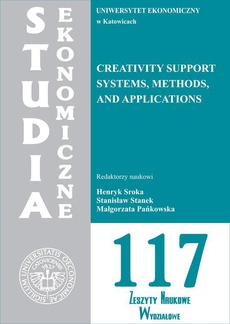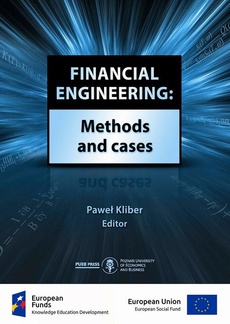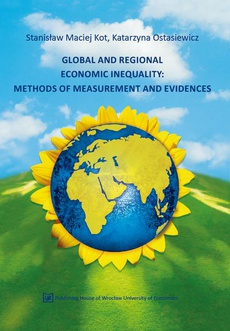POLECAMY
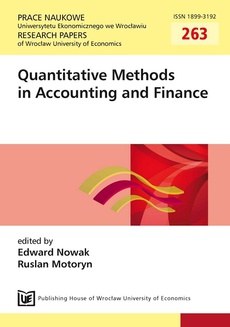
Quantitative Methods in Accounting and Finance
Redakcja:
Format:
ibuk
Accounting and finance are those disciplines of economic sciences in which quantitative methods are often used: statistics, econometrics and operational research. These methods make possible the quantification of different economic occurrences and the objectivity of the estimation of these occurrences. What is also important is the fact that in accounting and financial analyses one is to deal with numerous empirical data sets.
The study shows selected problems of finance and accounting, essential for both theory and practice. It also presents ways of measurement and estimation of definite economic-financial occurrences. To solve numerous problems, the methods of descriptive and mathematical statistics and multidimensional comparative analysis are used. In order to show the applications of these methods, empirical research was conducted.
The papers in this collection were prepared for The Fourth Scientific Seminar: “Quantitative Methods in A ccounting and Finance”. The Seminar was organized by The Cost and Management Accounting Department at Wrocław University of Economics in Rzeszów on 23–25 April 2012. Researchers from Wrocław University of Economics and the Ukrainian State University of Finance and International Trade from Kiev took part in the seminar.
This book is an annual publication designed to disseminate the quantitative analysis of accounting and finance. It is a forum for statistical analyses of issues in accounting and finance as well as applications of quantitative methods to problems in financial accounting, management accounting and financial management. The objective is to promote interaction between academic research in finance and accounting, applied research in the financial community and the accounting profession.
| Rok wydania | 2012 |
|---|---|
| Liczba stron | 190 |
| Kategoria | Publikacje darmowe |
| Wydawca | Wydawnictwo Uniwersytetu Ekonomicznego we Wrocławiu |
| ISBN-13 | 978-83-7695-274-1 |
| Język publikacji | polski |
| Informacja o sprzedawcy | ePWN sp. z o.o. |
Ciekawe propozycje
Spis treści
| Preface | 7 |
| Natalia Bielous: Methodology overview of the assessment of the economic security of an enterprise | 9 |
| Magdalena Chmielowiec-Lewczuk: Business insurance costing for the purpose of decision-making calculi | 16 |
| Edward Nowak: The possibilities of applying quantitative methods in postulated costing | 27 |
| Anna Isayeva: Topical issues of the disclosure of information about financial investments in financial statements | 38 |
| Joanna Koczar: Organization of accounting in the Russian Federation. Selected issues | 44 |
| Natalia Kovtun, Anzhela Ignatyuk: Multidimensional assessment of the potential and development level of Ukraine’s economy with respect to economic activities | 53 |
| Mirosława Kwiecień: The fair value dilemmas | 69 |
| Lesya Leshchiy: Methods used to define performance evaluation of innovative processes and products | 73 |
| Grzegorz Lew: An application of statistical methods in financial statements auditing | 80 |
| Michaylo Maliuzhenko: Methods of defining the interest rate amount based on the analysis of the dynamics of the IGLB market of Ukraine | 91 |
| Ruslan Motoryn: Harmonization of accounting and the system of national accounts | 101 |
| Tetiana Motoryna: Scope for using financial accounting data for the purposes of the system of national accounts | 109 |
| Vasylij Mukoviz: Capital evaluation in fiscal accounting with object of business operation | 116 |
| Maria Nieplowicz: A review of the measures used in the assessment of municipality management | 121 |
| Bartłomiej Nita: Two approaches to external financing needs estimation in financial planning | 130 |
| Maciej Norkowski: The Beyond Budgeting concept and multifaceted criticism of traditional budgeting | 140 |
| Marta Nowak: Advantages and disadvantages of auditor profession according to students of economics | 150 |
| Michał Poszwa: Models of business tax result statement | 162 |
| Alfred Szydełko: Application of the actuarial method in measuring provisions for future employee benefits | 173 |
| Marcin Wierzbiński: The main aspects of energy management | 182 |
| Natalia Bielous: Systematyka metodycznych podejść do oceny ekonomicznej sytuacji przedsiębiorstwa | 15 |
| Magdalena Chmielowiec-Lewczuk: Kalkulacja kosztów ubezpieczeń dla przedsiębiorstw na potrzeby rachunków decyzyjnych | 26 |
| Edward Nowak: Możliwości zastosowania metod ilościowych w rachunku kosztów postulowanych | 37 |
| Anna Isayeva: Aktualne problem ujawnienia informacji o finansowych inwestycjach w sprawozdawczości finansowej | 43 |
| Joanna Koczar: Organizacja rachunkowości w Federacji Rosyjskiej. Wybrane problemy | 52 |
| Natalia Kovtun, Anzhela Ignatyuk: Wielowymiarowa ocena potencjału i rozwoju gospodarki Ukrainy na podstawie pozycjonowania rodzajów działalności ekonomicznej | 68 |
| Mirosława Kwiecień: Dylematy wartości godziwej | 72 |
| Lesya Leshchiy: Metoda oceny systemu wskaźników funkcjonowania innowacyjnych procesów i produktów | 79 |
| Grzegorz Lew: Wykorzystanie metod statystycznych w badaniu sprawozdań finansowych | 90 |
| Michaylo Maliuzhenko: Metody określania wysokości stopy procentowej wykorzystujące analizę dynamiki rynku OWPP Ukrainy | 100 |
| Ruslan Motoryn: Harmonizacja rachunkowości i systemy rachunków narodowych | 108 |
| Tetiana Motoryna: Możliwości wykorzystania danych z rachunkowości finansowej do celów systemu rachunków narodowych | 115 |
| Vasylij Mukoviz: Wycena kapitału w rachunkowości finansowej a zarządzanie przedsiębiorstwem | 120 |
| Maria Nieplowicz: Przykładowe mierniki służące do oceny zarządzania miastem | 129 |
| Bartłomiej Nita: Dwa podejścia do szacowania zapotrzebowania na zewnętrzne źródła finansowania za pomocą planowania finansowego | 139 |
| Maciej Norkowski: Koncepcja beyond budgeting i wielopłaszczyznowa krytyka tradycyjnego budżetowania | 149 |
| Marta Nowak: Zalety i wady pracy audytora według studentów studiów ekonomicznych | 161 |
| Michał Poszwa: Modele rachunku wyniku podatkowego przedsiębiorstwa | 172 |
| Alfred Szydełko: Zastosowanie metody aktuarialnej do pomiaru rezerw na przyszłe świadczenia pracownicze | 181 |
| Marcin Wierzbiński: Podstawowe aspekty zarządzania energią | 190 |










